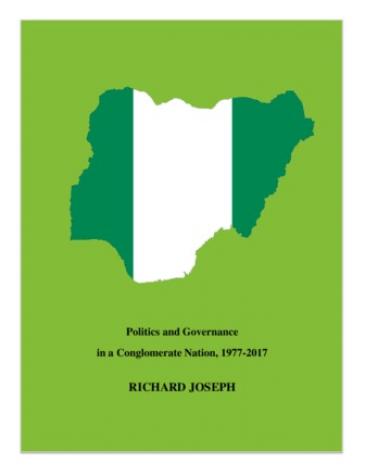Publications
Abstract
This revised version of a paper presented at a conference at MIT on State, Conflict, and Democracy in 1997 pulled together key dimensions of a Nigeria that had drifted far from constitutional and democratic governance. State and society had become increasingly criminalized; the educational system and other social sectors were eroding; and many civic and political activists were in detention or driven into exile. A multilayered hegemony resting on military structures, diverted income from petroleum revenue, and a resurgent northern primacy was resented and resisted. The execution of Ogoni environmental activists brought world attention to the deepening traumas. The Abacha regime responded with active outreach to autocratic leaders in West Africa, and even to seek support from African-American political and civic groups. The only exit from this national abasement was the removal in 1998 of its executor-in-chief.
About the Author
Richard A. Joseph is a political scientist and a professor at Northwestern University and was among the four inaugural Dr. Martin Luther King, Jr. Visiting Professors at MIT (1995-96). Joseph previously taught at Emory University, Dartmouth College, the University of California at Los Angeles, the University of Ibadan (Nigeria), and the University of Khartoum (Sudan). Joseph has devoted his scholarly career to the study of politics and governance in Africa with a special focus on democratic transitions, state building and state collapse, and conflict resolution. He directed the African Governance Program at the Carter Center (1988-1994) and coordinated elections missions in Zambia (1991), Ghana (1992), and peace initiatives in Liberia (1991-1994). He has been a longtime member of the Council of Foreign Relations.
